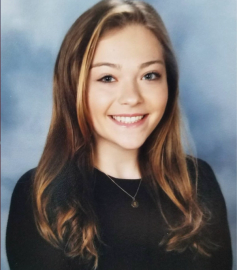- About Us
- Advertise / Support
- Editorial Board
- Contact Us
- CancerNetwork.com
- TargetedOnc.com
- OncLive.com
- OncNursingNews.com
- Terms & Conditions
- Privacy
- Do Not Sell My Information
- Washington My Health My Data
© 2025 MJH Life Sciences™ and CURE - Oncology & Cancer News for Patients & Caregivers. All rights reserved.
Breyzani Benefits Previously Treated SLL, CLL

Rylan DeStefano is an assistant editor working for CURE®, and has been with MJH Life Sciences since June of 2023. Rylan is a graduate from Muhlenberg College. When she’s not writing, Rylan loves to read, travel and spend time with family and friends.
CAR T-cell therapy positively benefitted patients with patients with relapsed or refractory chronic lymphocytic leukemia (CLL) or small lymphocytic lymphoma (SLL).
Breyanzi (lisocabtagene maraleucel), a CAR-T cell therapy, showed benefits for patients with relapsed or refractory chronic lymphocytic leukemia (CLL) or small lymphocytic leukemia (SLL), according to recent research published in The Lancet.
Overall findings have shown that patients with relapsed or refractory chronic lymphocytic leukemia (CLL) or small lymphocytic lymphoma (SLL) who have exhausted all other treatments can find improvements within T-cell therapy.
This type of immunotherapy allows for a patient’s own immune cells to fight off the cancer by altering T cells and then re-infusing them back into the body to fight off cancer.
“CAR-T therapy uses the patient’s own immune cells to fight cancer. This novel form of cellular immunotherapy has been a major advance in the treatment of relapsed B-cell lymphomas. Here we reported the first multi-center study of (Breyanzi), a CAR-T therapy in CLL/SLL,” said Dr. Shuo Ma, professor of Medicine in the Division of Hematology and Oncology and a co-author of the study said in a press release issued by Northwestern University Feinberg School of Medicine.
Both CLL and SLL originate in lymphocytes (white blood cells); CLL and SLL are very similar — except for the slight difference of CLL occurring in bone marrow, and SLL occurring within the lymph nodes — and are the most common subtypes of leukemia.
Historically, conventional immunochemotherapy (combining chemotherapy drugs with immunotherapy drugs to strengthen immune system and fight off the cancer) was the main source of care for patients with CLL and SLL. Once oral targeted therapies (drugs taken by mouth, and destroys cancer cells more precisely) have become more popular within the decade, BTK and Bcl-2 inhibitors have become main treatments for patients with CLL and SLL, according the press release.
These treatments do work well, but some patients with higher-risk disease relapse or stop responding to the treatment, being left with very few treatment options.
The study focused on the efficiency and safety of Breyanzi, and included 117 patients with relapsed or refractory CLL and SLL who had received and average of five lines of therapy previously. Every patient within the study was given a Breyanzi infusion, each at one of the two dosage levels being tested within the study, according to the press release.
Among the 49 patients who received the higher dosage, each having double refractory CLL or SLL, there was an overall response rate (percentage of patients whose disease shrunk or disappeared) of 47%, with the complete response and remission rate (meaning that cancer was undetectable after treatment) being 18%. This is differing from historical outcomes with different treatments, which were seen to be between and 0 to 5%, Ma explained.
This study also concluded that the time to response was around a month, and the patients who experienced full remission and response did not relapse within a 20-month period, according to the study.
Immune-related side effects included cytokine release syndrome, which was seen in 9% of the studied patients, and advanced neurological events, which was seen in 18% of the studied patients.
“CAR T-cell therapy is a very promising future treatment option for our patients with CLL/SLL. Future studies are being planned to compare this novel treatment with the existing standard treatments,” said Ma.
For more news on cancer updates, research and education, don’t forget to subscribe to CURE®’s newsletters here.
Related Content:



